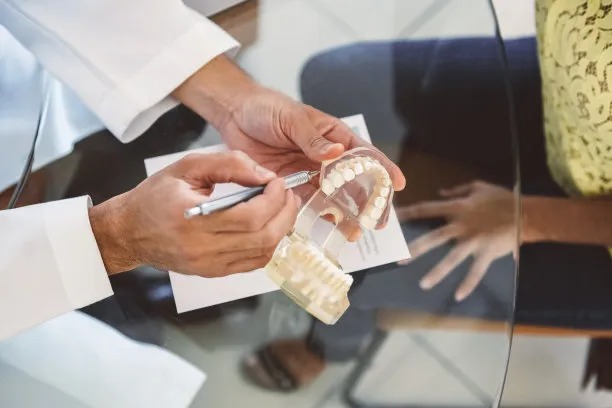Understanding the Process and Importance of Extracting a Tooth for Better Oral Health and Future Dental Care
Summary: Extracting a tooth is often seen as a last resort in maintaining oral health, yet it plays a crucial role in overall dental care. This article delves into the process of tooth extraction, its importance in preventing further oral health issues, the emotional and psychological aspects often overlooked, and the essential aftercare that ensures optimal healing. Understanding these factors will empower patients to make informed decisions about their dental health and future care. Through exploring these four significant aspects, one can grasp the necessity of tooth extraction as a pathway not just to relief, but to a healthier, brighter future for their oral well-being.
1. The Process of Tooth Extraction Explained

Tooth extraction is a well-structured procedure that aims to eliminate teeth that are beyond repair. The process typically begins with a thorough consultation where the dentist assesses the situation through dental examinations and X-rays. This initial assessment is vital as it helps outline the severity of the dental condition and guides the extraction approach.
Once the decision for extraction is made, the procedure itself can vary depending on whether the tooth is visible or impacted. A visible tooth can usually be removed with local anesthesia, ensuring that the patient feels minimal discomfort. Conversely, impacted teeth, such as wisdom teeth, may require a more invasive method, often involving sedation and surgical intervention.
After the extraction, patients may experience swelling and discomfort, which is completely normal. Dentists provide guidelines for pain management, emphasizing the importance of adhering to these instructions for a smoother recovery.
2. Importance of Tooth Extraction for Oral Health
Tooth extraction is often necessary to prevent further dental complications. Failing to remove problematic teeth can lead to more severe health issues, such as infections, alignment problems, and decay in neighboring teeth. When a tooth cannot be salvaged due to decay or damage, extraction ensures that the remaining teeth are protected from similar fates.
Additionally, in orthodontic treatments, tooth extraction may be essential to create sufficient space in the mouth for proper alignment. This aspect highlights the preventive stance that dentists take to promote long-term oral health through this process.
Furthermore, gum disease can be exacerbated by decayed or damaged teeth. Removing these teeth can significantly improve an individual’s oral hygiene and overall health, as it reduces the bacterial load in the mouth and allows for improved cleaning practices.
3. Emotional and Psychological Impact of Tooth Extraction
The emotional aspects of tooth extraction are often overlooked but can significantly influence the patient’s experience. Many individuals feel anxiety or fear regarding the procedure, stemming from apprehensions about pain or the implications of losing a tooth. It is essential for dental professionals to address these worries and provide reassurance throughout the process.
Moreover, the potential impact on self-esteem should not be dismissed, especially if the extraction results in visible gaps or alterations in appearance. Dentists can help mitigate these feelings by discussing options such as bridges or implants that can restore a patients smile.
Support from family and friends also plays a critical role in the emotional recovery following an extraction. Understanding and encouragement can empower patients to face the post-extraction period with confidence and positivity.
4. Essential Aftercare for Faster Recovery
Aftercare post-extraction is vital for a successful recovery. Patients should follow the dentist’s guidelines closely, which often include avoiding hard foods, refraining from vigorous physical activity, and keeping the extraction site clean. Proper aftercare not only aids in healing but also helps prevent complications such as dry socket, which can occur when the blood clot at the site becomes dislodged.
Additionally, regular follow-up appointments with the dentist are crucial in monitoring the healing process. Any signs of unexpected pain, swelling, or prolonged bleeding should be reported immediately. Dentists can quickly address any complications and guide patients through their recovery journey.
Staying attentive to rest and nutrition also supports the healing process. Incorporating anti-inflammatory foods and staying hydrated can enhance recovery and ensure that patients return to their regular lives as soon as possible.
Summary: Understanding the process of tooth extraction, its significance for oral health, the emotional impacts associated with it, and the essentials of aftercare forms a comprehensive view of how extracting a tooth can actually be beneficial in the long run. By grasping these elements, patients can approach dental care with a more informed mindset, leading to better decision-making for their overall health.
This article is compiled by Vickong Dental and the content is for reference only.



